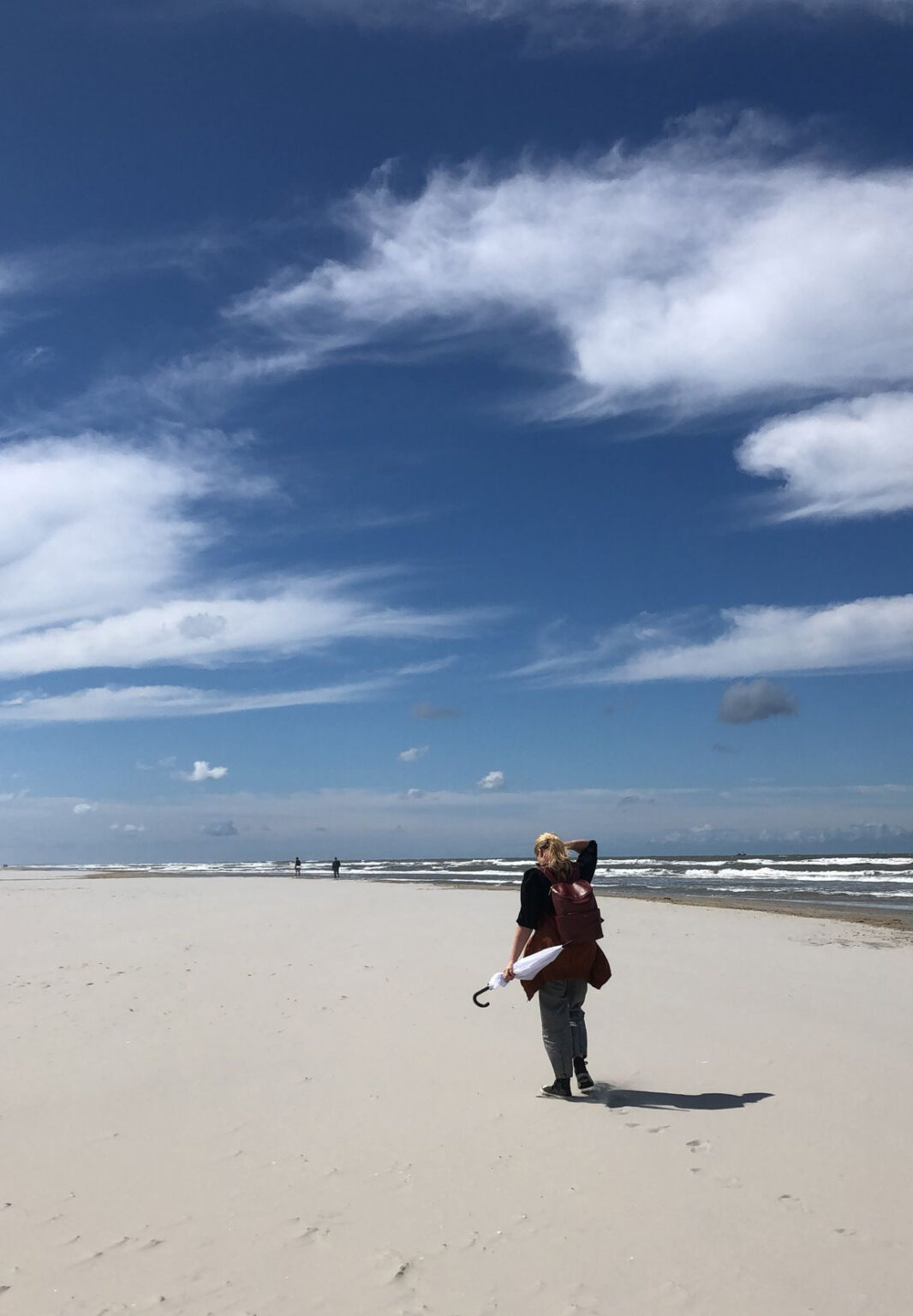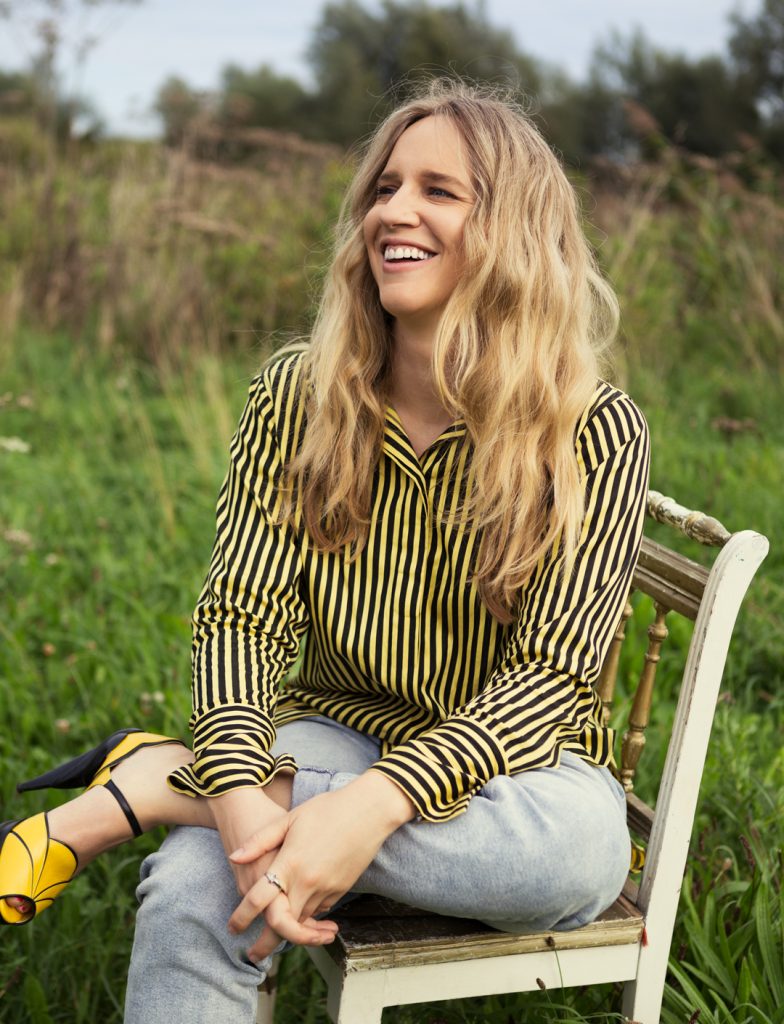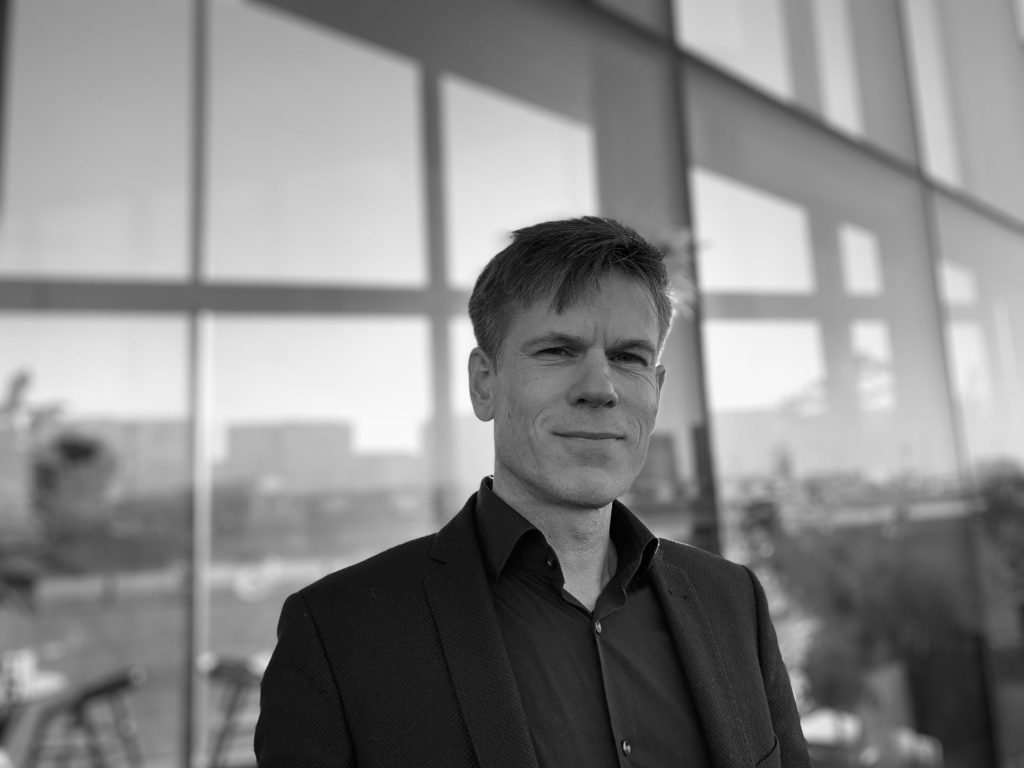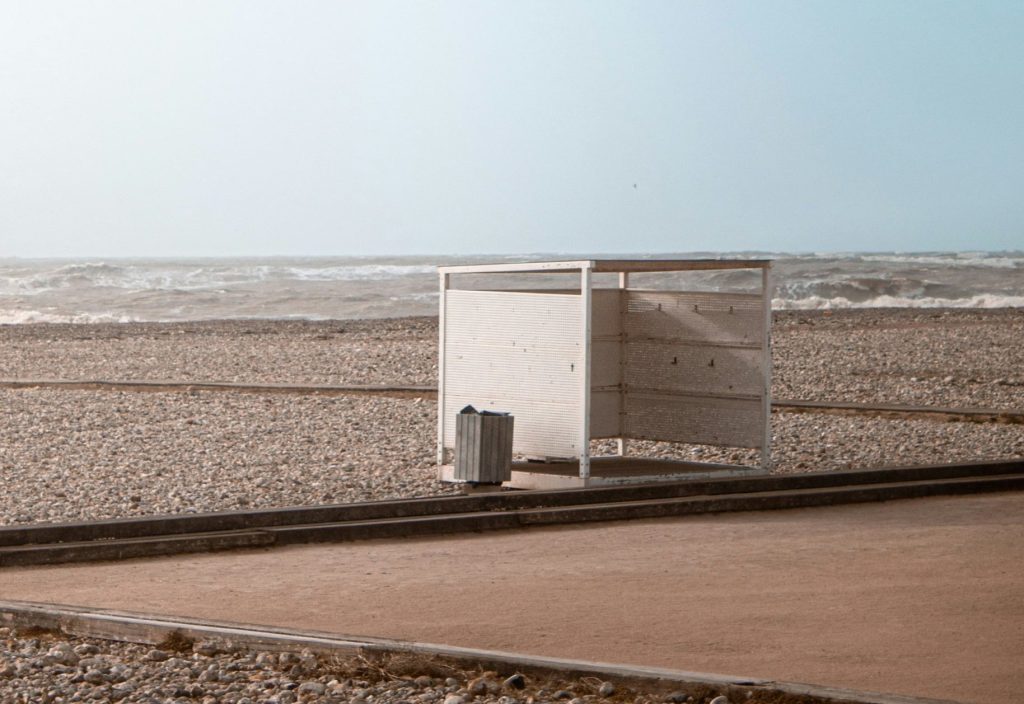Sara Madou (37) works as a freelance journalist, editor-in-chief and content strategist. At age 29, she became the editor-in-chief of CJP (the Dutch Cultural Youth Passport) while working for magazines such as Vogue, Vrij Nederland and Flow. She now also works as a PR & Marketing expert for non-profit organisations through her company Shake Productions, as well as in the cultural sector and for a publishing house. Her secrets to being a successful freelance editor? Check LinkedIn, stick to agreements and do a solo brainstorm on, for example, Ameland once a year.
A solo brainstorming session on Ameland. Is that as fun as it sounds?
“Yes, absolutely. Listen, I’m not a traveller, so you won’t find me on the other side of the globe with just a backpack. But I do need help relaxing, because of course there are always distractions, chores and things to do. On Ameland, I don’t have cats to take care of, or my man around. There, I have nothing to do, which actually allows me to really reflect on my work. Sometimes I come up with a brainstorm question for myself or for a new client, sometimes I come up with an annual business plan, and sometimes nothing comes up at all. I’ve done it about 6 times now, and it’s just always such a nice gift to myself. I can thoroughly recommend it to everyone.”

You’ve been working as a freelance editor for 5 years now. Is it everything you expected to be?
“I used to dream of becoming editor-in-chief of a glossy. So that idea was stuck in my head for a while, until I found out that it suits me less than I thought. Sitting in an office from 9 to 5 just isn’t for me: I’m at my most productive in the evenings and I also like a bit more variety. This led to me doing more freelance assignments on the side, resulting in taking small steps back in working hours at my permanent job. Until, during a job application, someone asked me: ‘Why don’t you start freelancing full-time?’. Strangely enough, I’d never given that any thought. It’s many years later now, but I’ve never, for one second, regretted making this choice.”
How do you chose your clients?
“I now mostly only work for organizations I feel a connection with, otherwise it doesn’t really work out because I’m just much too honest and direct. My curiosity in particular is leading when making decisions. I will very occasionally choose a job just for the money, but that rarely makes me really happy.
That was also one of the reasons I started freelancing, so that I would have the choice to pick projects I feel comfortable with. I now work for a publishing house and for the documentary department of NTR, and I’m also a freelance writer for NRC and Libelle, among others. The latter has a super cool supervisor who allows you to put forward your own ideas.
I’ve also found a great balance working as part of a team with at least one client, otherwise my work life would get pretty lonely.”
What do you find most difficult about being a freelancer?
“Peddling my ideas was always one of the things I found the hardest, but since the Covid pandemic I’ve been tweaking my work in such a way that I no longer have to be bothered with that.
Perhaps that’s also because I’ve started working in the non-profit sector more, for clients such as AVA (an organisation that stands up for women’s rights for abortion and contraception), ATRIA (a knowledge institute for emancipation and women’s history) and Rutgers (expertise centre on sexuality). I did a number of communication projects for such organisations in which my skills and experience counted more than my ideas. I found that very refreshing.”
What are your future ambitions?
“Well actually, my ambition is to work less, haha! I’d like more peace and less stress about being able to find enough work, because I’ve never been without a job or assignment in the past 5 years. I find it very difficult to say no. There’s so much I like doing: from editing, to PR and communication. Which sometimes results in being tempted too easily to take on another assignment.
And I always have to answer emails within 24 hours. Not that anyone expects that from you, but if that’s something you always do, you actually create that expectation for yourself.
I would like to write for newspapers more, like I do now for NRC. And I’m very happy with my PR assignments for the publishing house, because it means I get to read a lot.”

And now, the key question every freelance journalist would like an answer to: what are the core characteristics of a good editor?
“I once wrote an article about that for Villa Media (website about journalism), and about the fact that as a supervisor I was quite annoyed by the so-called ‘lax freelancer’.
By that I mean that there are so many journalists that don’t stick to agreements. For example, when meeting with an editor and asking them to provide some ideas and then never hearing from them again. Or they’ll email you 2 days before the deadline to say they’re ill and can no longer submit an article, leaving you with 2 blank pages.
There are so many freelance writers or student journalist who are afraid there’s not enough work for them. But I always tell them: if you do your job well enough, there certainly is work. Furthermore, it’s very important, especially when making a pitch, that you can clearly explain why you are the right person for that particular article. And also: what’s the angle of the article? And why should it be written now?
Also, just stick to the agreements you made and indicate on time that you’re unable to meet the deadline. Consult with your client, because that’s what they’re there for after all.
Oh, and one last tip: check out Linkedin. Many people working in the creative sector think it’s boring, but you’d be surprised how many nice assignments I got through that platform.


